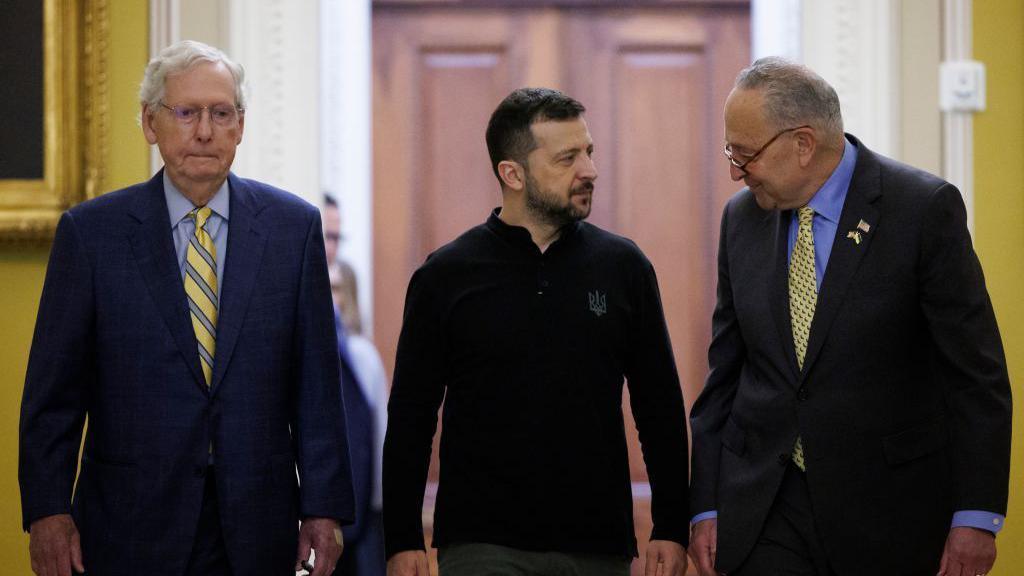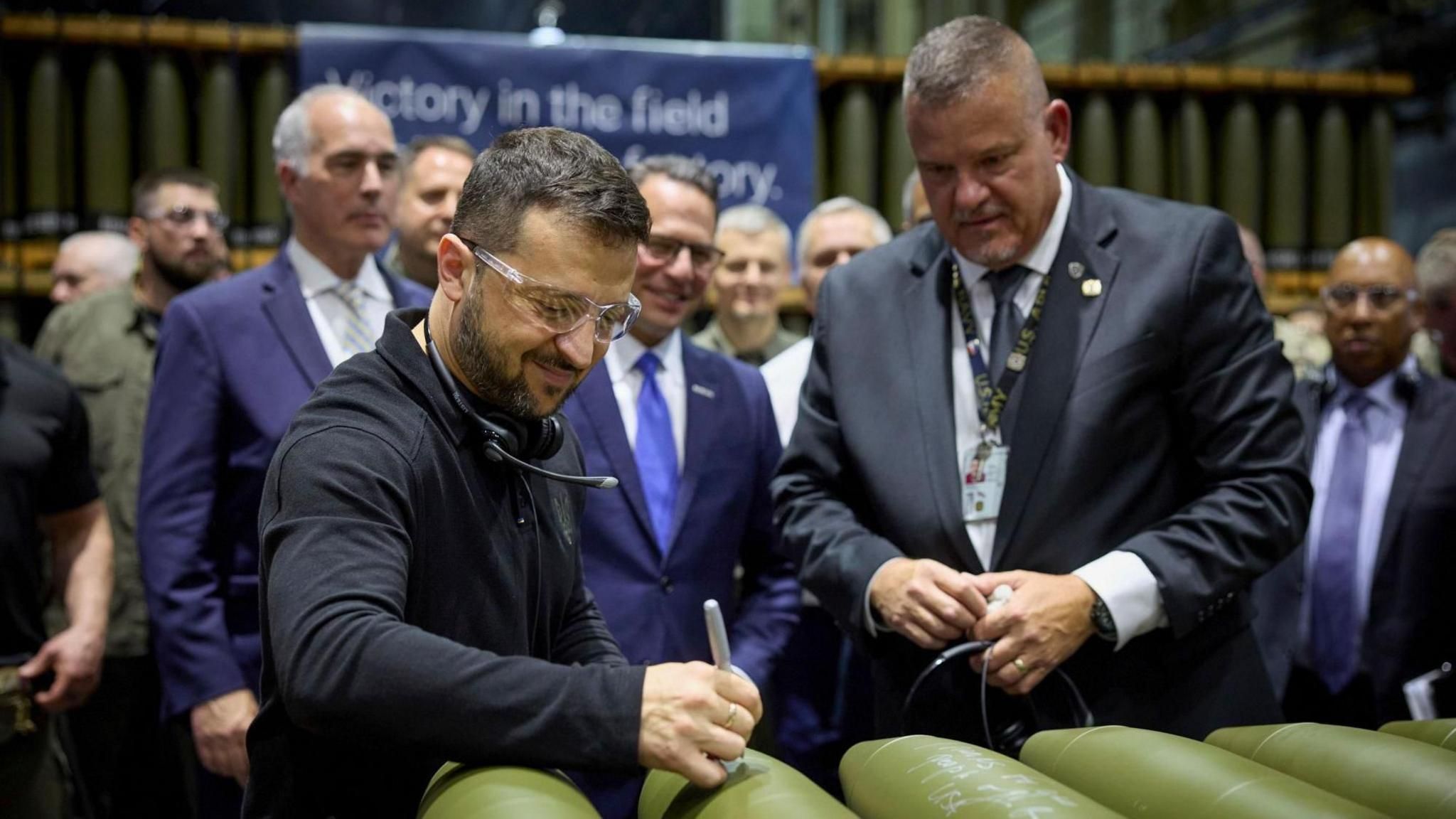Updated on: October 14, 2024 4:48 pm GMT
As the conflict between Ukraine and Russia continues, tensions are rising not just on the battlefield but also within U.S. political circles. Ukrainian President Volodymyr Zelensky is making headlines with his recent visit to the Scranton Army Ammunition Plant, which sparked a furious response from Republicans in Congress.
Zelensky’s Diplomatic Efforts Amidst U.S. Political Tensions
Zelensky traveled to the U.S. to seek support while the war in Ukraine rages on. His visit, however, became controversial when he opted to meet with top Democrats at an arms factory in Pennsylvania, instead of visiting former President Donald Trump as originally planned. This choice angered many Republican lawmakers, who claimed that the visit was nothing more than a partisan campaign event.
- Speaker of the House Mike Johnson criticized Zelensky’s actions, suggesting the visit was “designed to help Democrats.”
- He even requested the firing of Ukraine’s ambassador to the U.S. for arranging the visit.
- The House Oversight Committee, led by Republicans, indicated they would investigate the visit.
Zelensky’s push for support coincides with President Joe Biden announcing a $7.9 billion military assistance package for Ukraine, aimed at aiding the country’s conflict with Russia.
A Call for a “Victory Plan”
During his visit, Zelensky presented a “victory plan” designed to pressure Russia into pursuing a diplomatic resolution to the ongoing war. He emphasized the urgency of the situation, noting that this plan must be agreed upon within the next three months. He also seeks U.S. assistance for long-range missile capabilities, which Biden has so far withheld.
Zelensky’s relationships with American leaders remain complex, particularly with Trump, who made headlines recently by referring to Zelensky as the “greatest salesman on Earth.” Trump’s ongoing rivalry with Zelensky stems from past scandals that included Trump’s impeachment in 2019 over alleged pressure on Ukraine to conduct political investigations.
Military Support and Ongoing Violence
While Zelensky works to secure political backing, Russia’s attacks on Ukraine have intensified. Recent missile and drone strikes hit the regions of Sumy, Odesa, and Kyiv, leaving casualties in their wake.
- Zelensky noted that air raid sirens and explosions were reported in the capital.
- He expressed gratitude for U.S. military support, calling America Ukraine’s largest foreign donor.
As Zelensky pushes for more weapons to be sent to Ukraine, concerns continue to grow regarding Russia’s military potential. Russian President Vladimir Putin announced changes to Moscow’s nuclear policy, hinting at a more aggressive stance in the conflict.

A Political Minefield Ahead
Zelensky’s interactions with U.S. officials occur against a backdrop of challenging political dynamics. The Republican Party is split on Ukraine, with some members supportive, while others raise questions about ongoing funding and military support. Some Republicans view Zelensky’s visit not as a genuine plea for help, but rather as an effort to influence 2024 election outcomes.
This complicated landscape illustrates the delicate balance that Zelensky must navigate. His ability to gain bipartisan support is crucial because U.S. backing has been integral to Ukraine’s defense efforts against Russian aggression.
Conclusion
As the war in Ukraine gets worse, President Zelensky’s trip to the U.S. shows how foreign aid and American politics are connected. His visit highlights the important issues at stake, not just for Ukraine but also for the future of politics in the U.S. With a key military support package being discussed and the threat of more attacks, both Zelensky and U.S. leaders have big challenges to tackle. For Ukraine to succeed, they will need help from the White House and support from Congress.
